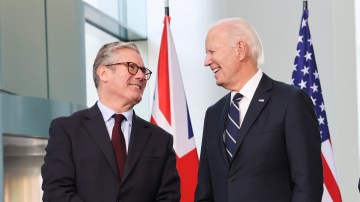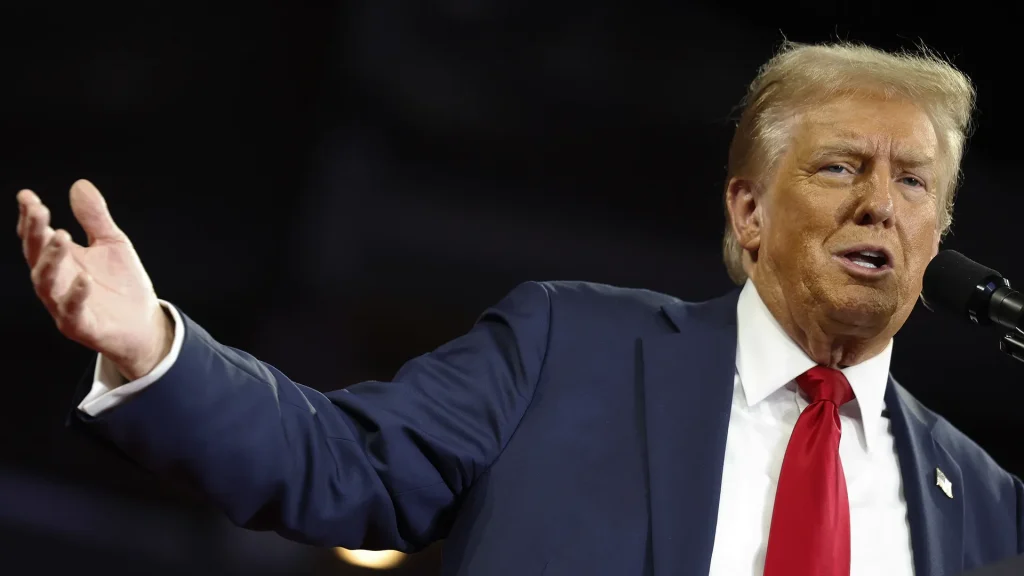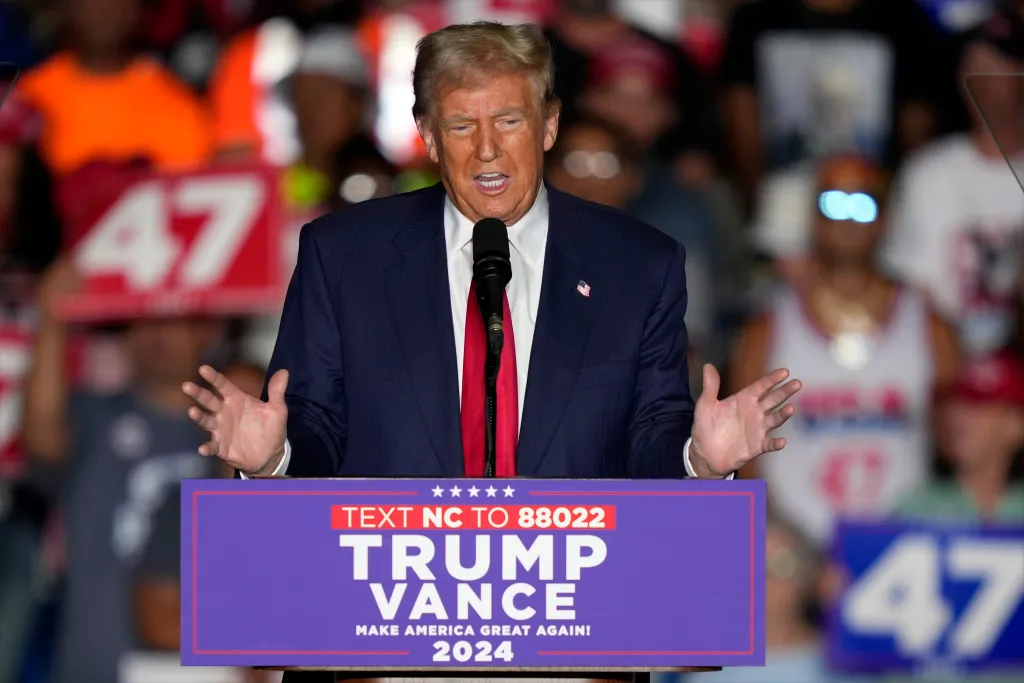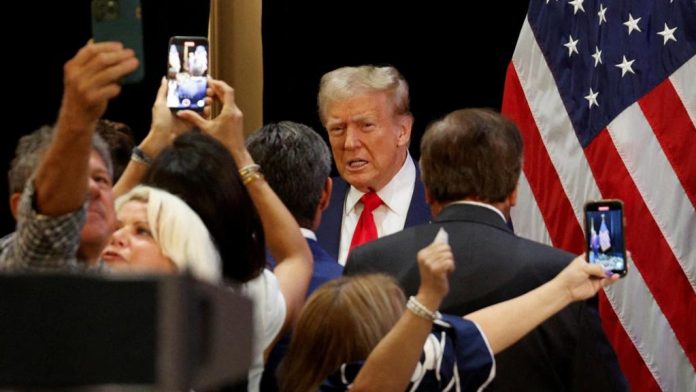Donald Trump’s campaign has accused British Prime Minister Keir Starmer’s Labour Party of “blatant foreign interference” in the U.S. presidential election, alleging that Labour volunteers are helping Kamala Harris’s campaign. The Trump team has lodged a formal complaint with the Federal Election Commission (FEC), calling for an immediate investigation into what it described as “illegal foreign national contributions” made by the Labour Party to assist Harris, the Democratic vice president, in her 2024 presidential run.
The complaint centers on reports and a now-deleted LinkedIn post from Sofia Patel, the Labour Party’s head of operations. In her post, Patel claimed that nearly 100 current and former Labour Party staff would be heading to the United States to support Harris’s election campaign. The Trump campaign seized on this as evidence of foreign meddling, asserting that the involvement of British political operatives in a U.S. election could constitute a violation of American campaign finance laws.

“Those searching for foreign interference in our elections need to look no further than [the] LinkedIn post,” the Trump campaign said in its complaint. “The interference is occurring in plain sight.” The letter goes on to demand swift action from the FEC, warning that the integrity of the election could be compromised if foreign involvement in U.S. campaigns goes unchecked. The Trump campaign has made similar accusations in the past, alleging that foreign actors are trying to sway the election in favor of the Democratic Party.
The Labour Party, which has traditionally seen the U.S. Democratic Party as its ideological counterpart, came to power in July under Keir Starmer’s leadership. Starmer, who has sought to strengthen ties with Washington, recently met Trump at Trump Tower in New York during a diplomatic visit in September. Despite this meeting, the Trump campaign’s complaint has raised questions about whether the involvement of Labour Party staffers in U.S. election campaigning could complicate future relations between the two leaders.
However, Starmer has downplayed the issue. Speaking to reporters while traveling to Samoa, the British prime minister said he did not expect the complaint to strain relations with Trump should he win the November 5 election. Starmer pointed out that Labour volunteers have a long history of helping in U.S. elections and noted that the current group of volunteers were acting on their own time. “They’re doing it in their spare time, they’re doing it as volunteers, they’re staying I think with other volunteers over there,” he said.

The Labour Party’s involvement in U.S. elections is not without precedent. In previous elections, British political operatives from both the Labour and Conservative parties have been known to assist their U.S. counterparts, viewing the election process as a valuable learning experience. Starmer stressed that this is a routine practice and nothing new or unusual. “That’s what they’ve done in previous elections, that’s what they’re doing in this election, and that’s really straightforward,” he added.
Despite Starmer’s reassurances, Trump’s campaign has suggested that Labour’s assistance to the Harris campaign could amount to improper foreign interference under U.S. law. Foreign nationals are prohibited from making contributions to U.S. political campaigns, including donations of money, goods, or services. However, it is unclear whether volunteering for a campaign, particularly on an unpaid basis, falls under these restrictions.
The Harris campaign has not yet commented on the complaint, but legal experts suggest that the involvement of foreign volunteers could be a gray area in U.S. election law. While foreign nationals are banned from directly contributing to campaigns, the law is less clear about the legality of volunteering, especially if the work is not compensated and the volunteers are not donating resources such as money or equipment.
This latest complaint comes amid heightened concerns over foreign interference in U.S. elections. The 2016 presidential race was marred by allegations of Russian meddling in favor of Trump, and in 2020, there were fears that both Russia and China might try to influence the outcome. Now, with the 2024 election fast approaching, Trump’s campaign is eager to highlight any potential irregularities, particularly in relation to foreign involvement.

Starmer’s Labour Party, for its part, has dismissed the complaint as an overreaction. The British prime minister remains focused on building diplomatic ties with both U.S. parties, regardless of the outcome of the election. But with tensions running high in the final weeks of the presidential race, the issue of foreign interference—real or perceived—could remain a hot topic as Trump and Harris vie for the White House.
Ultimately, whether the Trump campaign’s complaint leads to an FEC investigation remains to be seen. The regulatory body will need to assess whether the Labour Party’s actions amount to a violation of U.S. campaign finance laws or if they fall within the boundaries of permissible volunteer activity. In the meantime, both sides are likely to continue using the accusation as political ammunition in an increasingly contentious election season.




